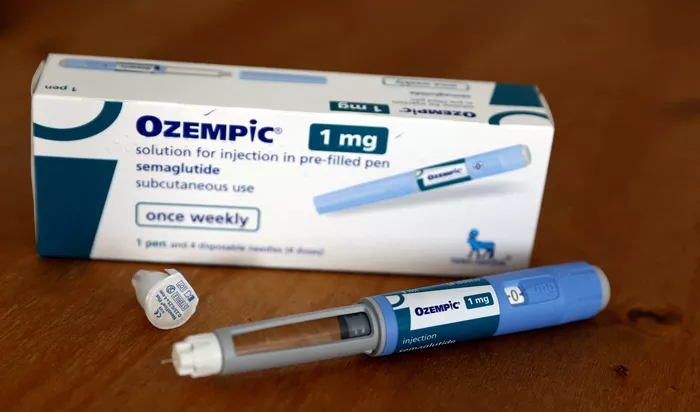A new study has provided more evidence that Ozempic, a popular weight loss medication, could cause hair loss in some people. Researchers at the University of British Columbia (UBC) in Canada found that individuals using semaglutide, the active ingredient in Ozempic and Wegovy, experienced more hair loss compared to those taking bupropion-naltrexone, another weight loss drug. This drug is chemically different and does not belong to the GLP-1 class of medications, which includes semaglutide.
The study, published on the MedRxiv preprint server and not yet peer-reviewed, is the first to explore this issue in a clinical setting. Dr. Mohit Sodhi, a researcher at UBC, emphasized that while many anecdotal reports and case studies exist, this is the first comprehensive investigation of hair loss linked to these drugs.
Hair Loss Risk: Comparing Semaglutide and Bupropion-Naltrexone
The research analyzed data from 1,926 individuals taking semaglutide for weight loss, excluding those with diabetes or those on antihyperglycemic medications. It also examined data from 1,348 individuals using bupropion-naltrexone (brand name Contrave).
The study found that the rate of hair loss among those using semaglutide was 26.5 per 1,000, compared to 11.8 per 1,000 for those using bupropion-naltrexone. The risk was notably higher for women, who were more likely to experience hair loss than men when using semaglutide.
Dr. Sodhi noted that the findings aligned with results from the clinical trials for Wegovy, which showed a similar risk of hair loss.
Is Semaglutide the Cause?
Though the study is still preliminary, it suggests that the weight loss caused by semaglutide, rather than the drug itself, may be contributing to hair loss. Dr. Sodhi explained that rapid weight loss can induce physiological stress, disrupting the natural hair cycle and potentially leading to increased hair shedding.
Doctors also believe that the drug’s effect on appetite might contribute to the problem. Semaglutide slows gastric emptying, making users feel fuller for longer and reducing their food intake. This can lead to nutrient deficiencies, which are essential for healthy hair growth.
Dr. Saami Khalifian, a dermatologist, explained that the hair loss seen in some GLP-1 users is often due to telogen effluvium, a non-scarring form of hair loss caused by a rapid hair cycle. This type of hair loss usually resolves over time. Dr. Brynna Connor, a family medicine physician, confirmed that many of her patients on GLP-1 medications have reported hair loss, along with other side effects like constipation and diarrhea.
Preventing Hair Loss While Using GLP-1 Medications
To reduce the risk of hair loss, experts stress the importance of maintaining proper nutrition while taking GLP-1 medications. Dr. Khalifian recommends prioritizing protein intake at meals, as people may feel full before consuming enough protein if they eat carbohydrates first.
Dr. Connor also suggests considering supplements like biotin to support hair health. Additionally, treatments like topical minoxidil could help stimulate hair growth.
Before starting GLP-1 medications, Dr. Connor advises getting lab tests to check for underlying health conditions, such as anemia or thyroid issues, that may also contribute to hair loss. For those already at risk, working with a dietitian to develop a nutrition plan is crucial.
Dr. Sodhi emphasized that patients with serious health issues, like morbid obesity or uncontrolled diabetes, may be more willing to accept side effects like hair loss, given the significant benefits of the medications. However, those using these drugs for cosmetic weight loss may need to consider the potential risks more carefully.
In any case, consulting a healthcare provider is essential to ensure the right balance between the benefits and risks of weight loss medications.
Related topics:
- RFK Jr. Seeks To Revise Food Additive Safety Rules: What You Need To Know
- Genetically Modified Pig Liver Transplant Offers Hope For Organ Failure Patients
- HHS Appoints Controversial Anti-Vaccine Activist To Investigate Vaccine Safety Data


